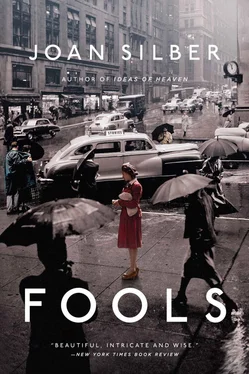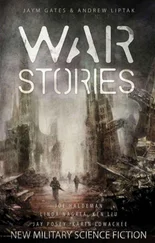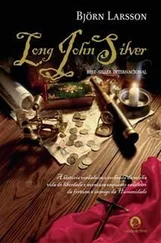“Isn’t everything you fight for,” I said, “the peace and the fair wages, for the sake of each family?”
“We fight for freedom ,” my sister said. “Not for cornflakes.”
But I fooled them all by being happy.
Ted came home every day from being a “permanent sub” teaching five English classes — oh, God, five — of ninth- and tenth-graders in deepest Brooklyn, and he could be very funny. We’d crack up over their misapprehensions of Silas Marner and their hilarious sentences, and I’d get indignant on his behalf when the principal made absurd decrees, and in this spirit of teamwork we ate my excellent meals, and by dessert I was explaining why I thought Pearl Buck wasn’t that great a writer or how Tolstoy could get into any character’s head. I had plenty of time to read.
We were happy in bed too. I had a life of considerable animal pleasures, a day of simple tasks easily done, and a husband who treated me well. I felt very elemental, in our fifth-floor walk-up, with its clanging pipes and lopsided walls — I was a person who’d guessed right about what was essential. I had what I wanted. How many people have that?
I didn’t even mind the summer, when our small, boxed-in rooms were airless ovens and we slept on the fire escape. Ted was teaching summer school to make more money, and in the days alone, I’d go dunk myself in the municipal pool on Carmine Street, near where I used to live. The pool was so crowded it was like swimming on the subway, but I’d see Ruthie or other girls I’d known in high school. I felt older, calmer, less worried than they were. I’d lie on a towel in my bathing suit and be very aware that my body was not a virgin’s body.
Ted’s summer school had all the students who’d flunked, and he was stuck with seventh grade (which he wasn’t even licensed for), a nightmarish age. Squirming, untamed creatures. He could not get them interested in the poetry of Oliver Wendell Holmes or the need for verb agreement. They were always talking, eating candy, passing notes, exploding into illicit laughter over who-knew-what.
One evening, Ted said he had worked out a “plan for dominance.” He’d told the class that any student who reported on another student eating in class or passing a note would be rewarded with an extra tenth of a point toward his or her grade.
“You’re training them to rat on each other?” I said.
“I’m teaching them to be loyal to me above all.”
“That’s fascism,” I said. He laughed.
In my family, ratting was the lowest of the low. My father had survived in prison by not breaking solidarity with other inmates and refusing special favors from the warden, lest people think he was a spy, and in the years since, more than one friend had gone to prison (and not for just a few months either) rather than give names of people who belonged to so-called Communist fronts.
“So you bribe them to turn each other in,” I said, “and you’re going to give them a false grade, with padded points?”
“You know absolutely nothing about keeping control in the classroom,” he said. “You have no idea. Do you?”
Ted came home the next day and said, “Hah! It’s working.” Three boys were turned in for eating a bag of Tootsie Rolls. He’d sent the three to the principal’s office while Ricky, the kid who reported them, crowed in his seat and was full of himself all day.
When the boys came back to class the following day they stole Ricky’s shoes, ripped his shirt, and then claimed to find a half-eaten Milky Way on his desk. “Here’s the evidence! You said we had to have evidence!”
Ted walked all four of them, whining in protest, to the principal. All was calm, except the principal came by after school to ask why Ted was having so much trouble.
“Uh-oh,” I said.
“I have to think of other punishments.”
He had to what? I saw that I didn’t know him very well, which made me feel extremely stupid. I hadn’t seen him this way before because I hadn’t seen him up close when he was losing. He was losing this class, I could tell.
The punishment he “invented” was docking their grades, and the summer became a tournament of shaved points up and down, a tangle of calculations and pettiness and futile warfare. He explained its progress often, and I could never follow what he was saying. I felt sorry for him, with his bluster and his vain efforts. Who was he kidding?
I felt increasingly sorry for me. Not that there was much to do about it, but why did I wait at the end of every day, with dinner on the stove, for a conversation I only wanted to get away from? The system didn’t work if I didn’t believe in him. Everything seemed ridiculous, including the drapes I’d been so tickled with.
And who did I think I was? Feet of clay, anyone would’ve said if I had complained about my husband. A mere bump in the long and winding road of marriage. My mother guessed (and I didn’t want her to guess), I could tell by the way she peered at me and patted my hand. I told my mother I wasn’t pregnant, if that’s what she was worried about.
We were still having sex, and I didn’t hate the sex either. It was now a more private set of excitements, as if I were crying out to myself. What a liar I was becoming, on all counts, scared and selfish both. Ted half knew, but only half. Some women stayed in love with their husbands long after the men began to beat them or cheat on them or publicly shame them. Ted was hardly guilty of anything worse than being a new and incompetent teacher. I knew that, I told myself that.
Once summer school was over, Ted had a brief spell of holiday in the hottest part of August. He dragged a kitchen chair out to the fire escape and sat in his undershirt, reading. Didn’t he want to go to the beach? Maybe just uptown to Central Park? He didn’t want to do anything. “What’s the point?” he said. He read the newspapers all day, he read magazines written for stupider people. “Go swim with your friends,” he said. “I’m fine here.”
When the pool closed for its annual week of maintenance, I sat with Ted on the fire escape, but he didn’t want any chatting. And he didn’t want the radio blaring from the kitchen either. No Tchaikovsky, no Fats Domino. “I guess that job really made you tired,” I said.
“What do you care?” he said.
I had brought about this state of irritated sorrow, this defeat. He did know.
I’d always been taught the truth sets you free, but it wasn’t doing that here. Here was a man who could hardly move from the weight of the truth. His sweating body was hunched over the page as he read. Hours passed when he didn’t raise his head. Who had made him suffer? I wanted to punch this person in the nose.
“Didn’t you used to fish in the park with your dad?” I said. “Don’t you want to go to the lake sometime?”
“I bet your dad never fished. I bet he didn’t want to kill a single minnow.”
“Anarchists used to be very violent, some of them. My father is an evolved form.”
“Why didn’t you marry him, then?”
I gasped and stared at him. “Very funny,” I said.
“You think he’s this great hero,” Ted said. “But he let my father die. He didn’t help him.”
I was furious then at Ted’s father, who’d been killed at Anzio — a playful man with boorish tendencies, in Ted’s stories. It was just as well I had nothing to say against him because I might’ve said it. A decade had passed, a whole other inexplicable war had happened since then — the “action” in Korea was just over that summer — what was making Ted bring this up now?
“What do you want from me?” I said.
“Admit he’s a failure.”
“Who?”
“Your father.”
“Failed how?” I said.
Читать дальше












